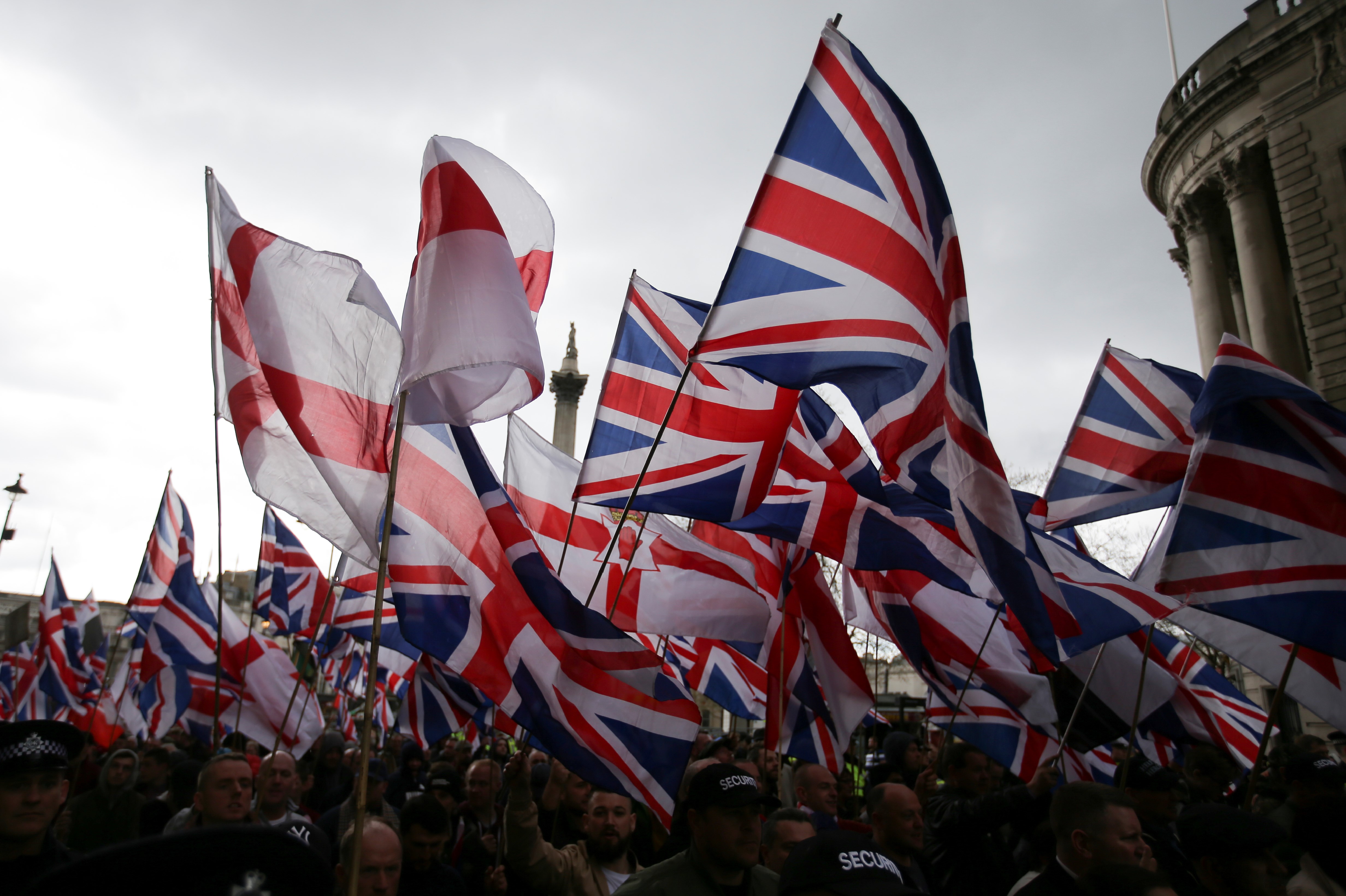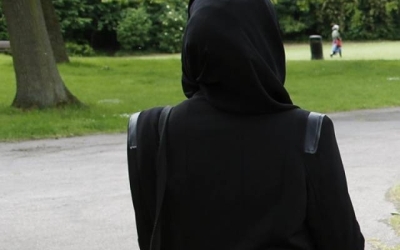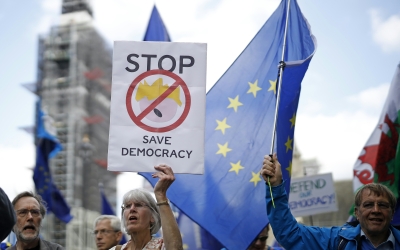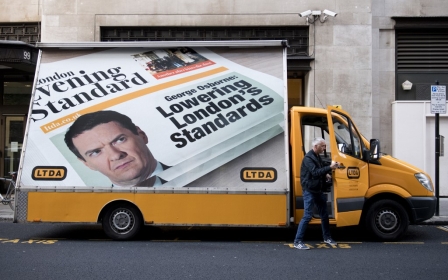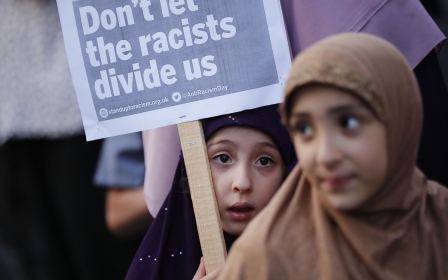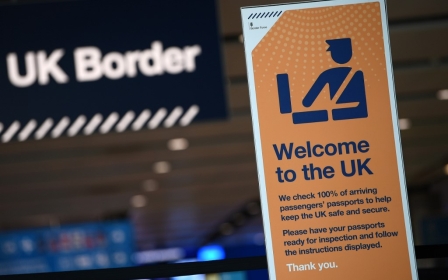On Islamophobia, Britishness and the shrinking political space

I have been swotting up on Jerusalem for my youngest’s A-Levels this month. I would rather abstractly debate whether the dark satanic mills of William Blake’s imagination are the factories of the industrial revolution, or ponder the orthodoxy of the established church, or, in Jez Butterworth’s celebrated play of the same name, the evils of Kennet & Avon Council and all it represents for the nation.
Instead I find myself having to visit the work of the Commission for Countering Extremism (CCE) and Andrew Norfolk of The Times.
The latter had already been thoroughly debunked as a charlatan by Paddy French and Brian Cathcart’s report into his misreporting of the Muslim foster family story. The day after his story broke in The Times a 45-minute forensic examination of just how badly the story had been misrepresented was aired on BBC Radio 4.
No substance
In terms of the content of CCE’s publications, there was nothing new or of substance regarding the Islamic Human Rights Commission (IHRC), for whom I work, or indeed any of the other Muslim organisations like CAGE, Mend and Hizbut Tahrir, mentioned in them.
New MEE newsletter: Jerusalem Dispatch
Sign up to get the latest insights and analysis on Israel-Palestine, alongside Turkey Unpacked and other MEE newsletters
This attack on British institutions is calculated
In IHRC’s case, there were a few utterly incorrect items, running along with the screeching narrative that mainstream Muslim organisations don’t know their place (that is to be seen and not heard). The Times pieces seemed to comprise an odd mix of misrepresentation not only about IHRC’s work but also the function of HMRC, Gift Aid and the role of the Charity Commission.
In a normal world, we would have expected the latter to have publicly chastised The Times for undermining public confidence in the charity sector. But we are not in normal times and this attack on British institutions is calculated.
A shrinking space
The relentless tirade from certain media and political classes against Muslim civil society has not only expelled Muslims from the political space, it has shrunk that space to its minimum for almost everyone.
The European Union's Fundamental Rights Agency highlighted this nearly two years ago as a Europe-wide trend that delegitimises critique and prevents civil society organisations (CSOs) from fulfilling their function as critical voices and places of expertise.
In the UK, being anti-war was once an eccentricity. Now criticising the military is almost akin to treason
CSOs find their funding curtailed or made subject to conditions that silence them on key issues. Other barriers include the introduction of discriminatory legislation and the targeting and vilification of CSOs - especially human rights defenders - by politicians and the media.
So in the UK, being anti-war was once an eccentricity. Now criticising the military is almost akin to treason. This week, one of the most principled postulations of the Labour opposition was eroded by John McDonnell’s interview in GQ magazine in which he recanted his earlier support for Tony Blair to face trial for war crimes at The Hague.
Muslim dehumanisation
That demand was one of the few that dealt with the vicious spiralling of dehumanisation of Muslims – killed in their millions – as part of the endless war on terror. Meanwhile, the language of war and the imagery of military glories past echo in the parliamentary chamber.
The language that vilified Muslims has now cross-fertilised and mutually reinforced attacks on civil society per se, and dissenting views on Brexit
The language that vilified Muslims has now cross-fertilised and mutually reinforced attacks on civil society per se and dissenting views on Brexit, the NHS and so much more. Islamophobia has always needed to be understood as part of the deeper crisis of the political and social culture we live in.
"No surrender!" shrieks our current prime minister, whilst all around him aver to Dunkirk and the Churchill spirit as Brexit nears, and Leave.EU proclaims we didn’t fight a war to be told what to do by a "Kraut".
What irony then that I was berated by the former prime minister Tony Blair’s institute earlier this year for expressing in these pages a desire to delegitimise the government when I called for the removal of the chief schools inspector: "[Amanda] Spielman's speech is a statement of intent, a declaration of war, and a pre-emptive justification of the onslaught to come," I wrote.
I referred, of course, to the Oftsed chief inspector’s attack on schoolgirls wearing hijab, and the demonisation of them and their parents back in early 2018. In forecasting the further decline of media and policy narrative around Muslims and Islamic belief, that article was prescient.
What is Britishness?
This year has seen a spate of "reports" all clamouring to identify what government lawyers had hitherto claimed was legally indefinable: "extremism".
All attempts hark to some idea of Britishness but fail to give any version of it that isn’t simply a negative statement of identity - whatever it is that Britishness is supposed to be, it isn’t Muslim, Islam or any form of Muslimness.
Whatever it is that Britishness is supposed to be, it isn’t Muslim, Islam or any form of Muslimness
And that Muslimness now encompasses all things. Concerns regarding civil liberties, opposition to restrictive immigration practices, calling out racism and Islamophobia, opposing military endeavours, calling for accountability for war crimes, decrying sexism, demanding parental rights - these now are all restricted for everyone.
Just as Muslims have associated the attacks on them via tropes associated with the above, with hate attacks both verbal and physical, so now we find some MPs and anti-Brexit activists in this brave new Jerusalem being provided 24 hour protection by the police.
Institutional sensitivity
This institutional sensitivity to the danger of the heightened, visceral rhetoric of polarisation we live in in this Brexit moment is still only afforded to the few privileged by class, money and political position. Ask any European living here since Brexit, or Muslim since 9-11, and more so since Boris Johnson's nikab remarks, and they will explain how it works.
First you can no longer say what everyone else says without vilification; you definitely cannot have a view of your own distinct from the crowd and the institutions you venerated, which you thought were there to support you against the vagaries of the state: charity regulator, the police service, schools inspectorate - all either fail in providing their support or, worse still, become part of the mechanism of violence against you.
When questioning is demonised as "delegitimising", then everything from being a remainer to opposing the prorogation of parliament falls foul of not just the term "extremism" but the relentless push to curb it.
It is no coincidence that the slew of reports - each feeding off the other to legitimise their "arguments" - on defining extremism call for the further crushing of civil society. Each demands that inter alia the Charity Commission, the UN, the EU, the Home Office etc change their procedures and guidelines for engaging with civil society so that every new Islamist bogeymen is denied accreditation or platforms.
A crucial stage
In the past, support for CAGE was relentlessly attacked by the media because its then spokesman, Asim Qureshi, called "Jihadi John" a once "beautiful young man" (he later regretted it and called the remark "inappropriate"). Maybe it was not the best choice of words, but then maybe the difference is that Qureshi does not sit behind the editor’s desk of a major newspaper. I counted over 15 articles in The Times alone averring to this incident.
This week, The Times ran a story highlighting the plight of the family of Yousef Makki's killer, Josh Molnar. Molnar is "middle class" from a "leafy suburb" and has "mild learning difficulties". A further article’s headline implicitly rebukes Makki’s family for refusing to forgive him.
Meanwhile The Times leader called on the British powers that be to shun IHRC because we are hypocrites because we have not run a campaign about women and hijab in Iran. We have run campaigns about the punitive impact sanctions are having on ordinary people in Iran, including the denial of life-saving medication, something The Times has been all too quiet about. It’s all a little bit pot, kettle, dark satanic mills?
We are at a crucial point in British history. As the decades-old myths of England collapse under the weight of the Brexit comedy-drama, its institutions must decide where they stand. Its highest courts have been surprisingly radical in holding this government to account over the illegal prorogation of parliament.
They, too, felt the ire of the prime minister and his clique in much the same fashion as critical civil society. It's up to the rest to decide where to draw the line.
The views expressed in this article belong to the author and do not necessarily reflect the editorial policy of Middle East Eye.
Middle East Eye delivers independent and unrivalled coverage and analysis of the Middle East, North Africa and beyond. To learn more about republishing this content and the associated fees, please fill out this form. More about MEE can be found here.



